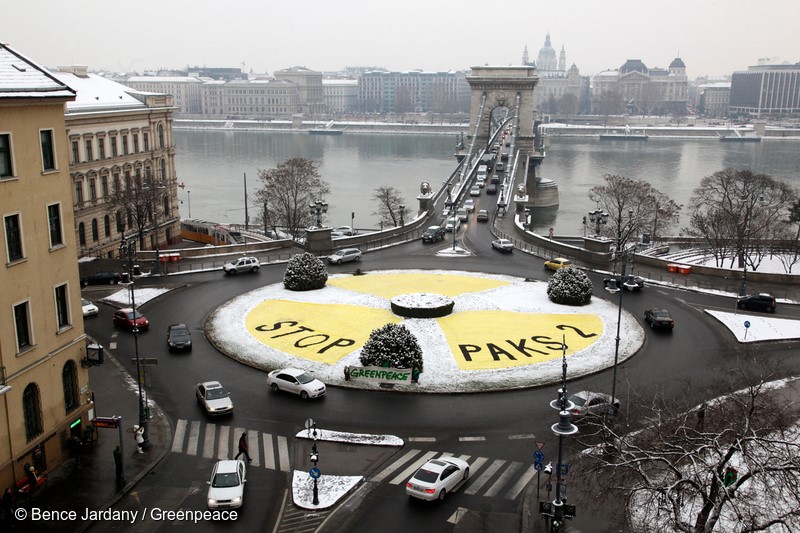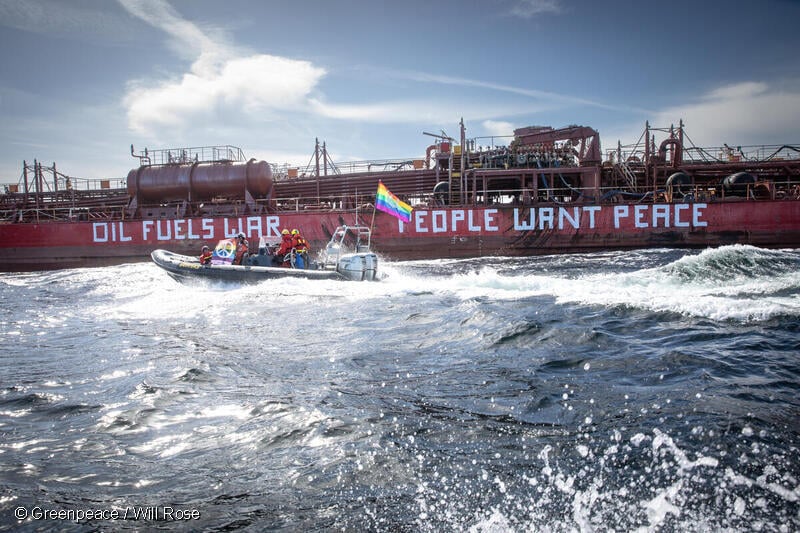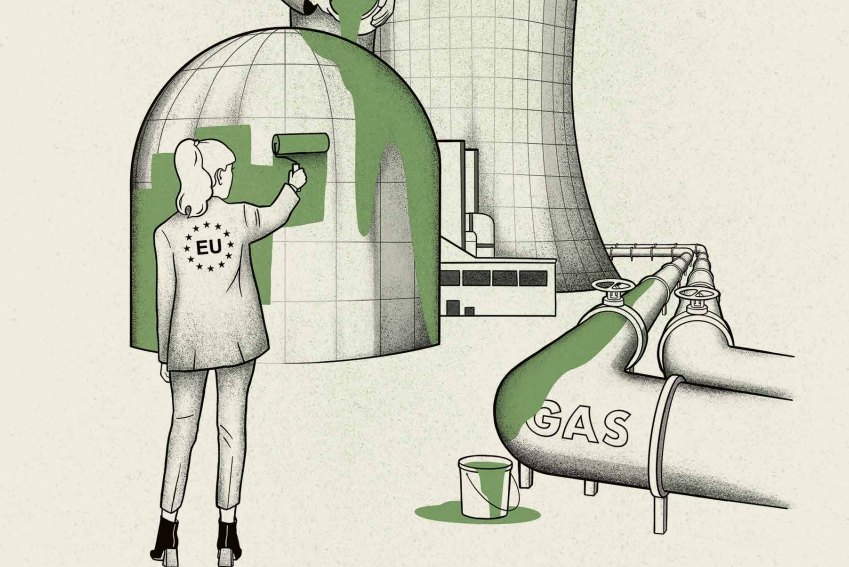Brussels – A new draft list of EU sanctions on Russia, released by the European Commission, fails to tackle Europe’s dependence on the nuclear trade, just as a ship previously identified as transporting Russian uranium reached the port of Dunkirk, in France, on Wednesday, after a short stop in Rotterdam, in the Netherlands, on Tuesday.
***Download pictures of the Russian cargo in Dunkirk
As governments clash over the inclusion of uranium and other nuclear tech in the latest round of sanctions, shipments of nuclear fuel continue to make their way to the EU, bankrolling the war in Ukraine, prolonging Europe’s energy dependence and delaying a renewable energy transition.
Greenpeace EU sustainable finance campaigner Ariadna Rodrigo said: “Ignoring the nuclear trade leaves a hole in EU sanctions so big you could drive a tank through it. If EU governments are serious about stopping war, they need to cut the European nuclear industry’s umbilical cord to the Kremlin and focus instead on accelerating energy savings and renewables. Dodgy deals with dictators in exchange for energy are the reason people are facing high energy prices this winter. Nuclear power only makes things worse: it’s a risky and polluting waste of time and money, and it’s inherently dangerous, particularly in times of war.”
The governments of Hungary and Bulgaria blocked an attempt last weekend by Germany, Poland, Lithuania, Latvia, Estonia and Ireland to ban the nuclear trade with Russia. In April, the European Parliament called for a full embargo of Russian imports of nuclear fuel, echoing a repeated demand by the Ukrainian government.
At the heart of Europe’s dependence on Russian nuclear supplies is state-controlled Rosatom, which runs the civilian industry, but is also in charge of Russia’s nuclear weapons arsenal and is currently overseeing the occupied Zaporizhzhia nuclear power station in Ukraine.
There are 18 Russian-designed nuclear reactors in Europe, in Finland, Slovakia, the Czech Republic, Hungary and Bulgaria, all of which rely on Rosatom for their supply of nuclear fuel and other services. In August, Hungary decided to move ahead with the construction of two more Russian nuclear reactors to expand the existing Paks nuclear plant.
Rosatom subsidiaries also supply nuclear plants in France, Germany, the Netherlands, and the UK. Rosatom, its subsidiaries and affiliated companies also provide maintenance for reactors across Europe, including in Belgium, Sweden, Spain, and Switzerland.
Deliveries of uranium from Russia have continued since the start of Putin’s invasion of Ukraine. The likely destinations include Hungary, France, Slovakia, Finland, Bulgaria and the Czech Republic. Russian shipments would normally have transited through Ukraine by train, but have instead been transported by air, because of the war, and despite the EU’s embargo on flights from Russia.
Nuclear waste is also regularly shipped from EU countries to Russia, where it is stored in worrying conditions.
About 20% of the enriched uranium used by the EU’s nuclear industry comes from Russia, with another 20% also coming from Kazakhstan.
Contacts:
Ariadna rodrigo, Greenpeace EU sustainable finance campaigner: +32 (0)479 99 69 22, [email protected]
Greenpeace EU press desk: +32 (0)2 274 1911, [email protected]
For breaking news and comment on EU affairs: www.twitter.com/GreenpeaceEU
Greenpeace is an independent global campaigning network that acts to change attitudes and behaviour, to protect and conserve the environment and to promote peace. We do not accept donations from governments, the EU, businesses or political parties. Greenpeace has over three million supporters, and 26 independent national and regional organisations with offices in more than 55 countries.
EU Transparency Register: 9832909575-41



